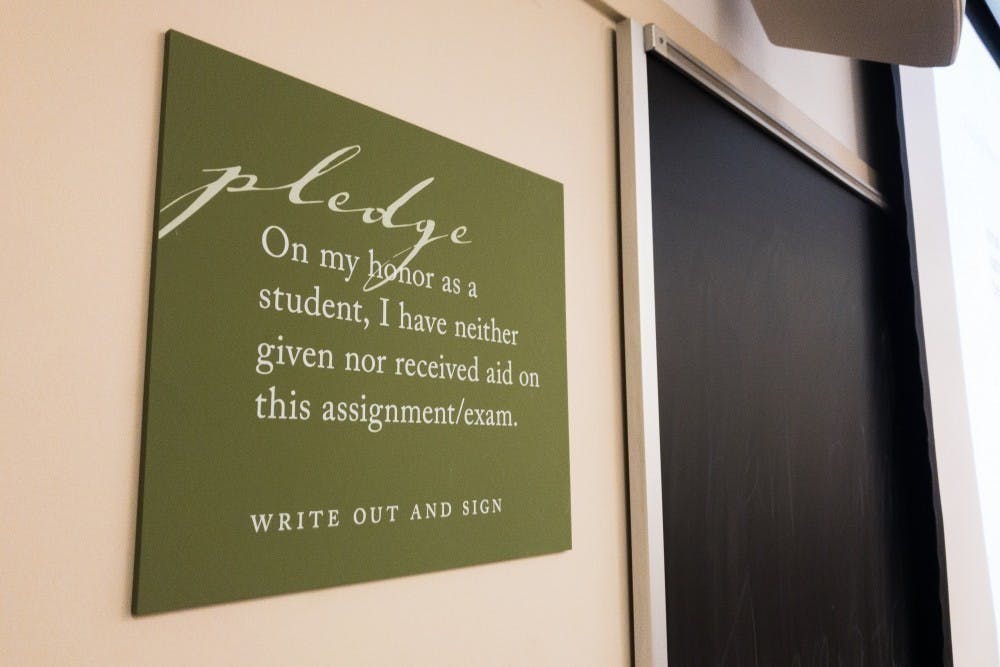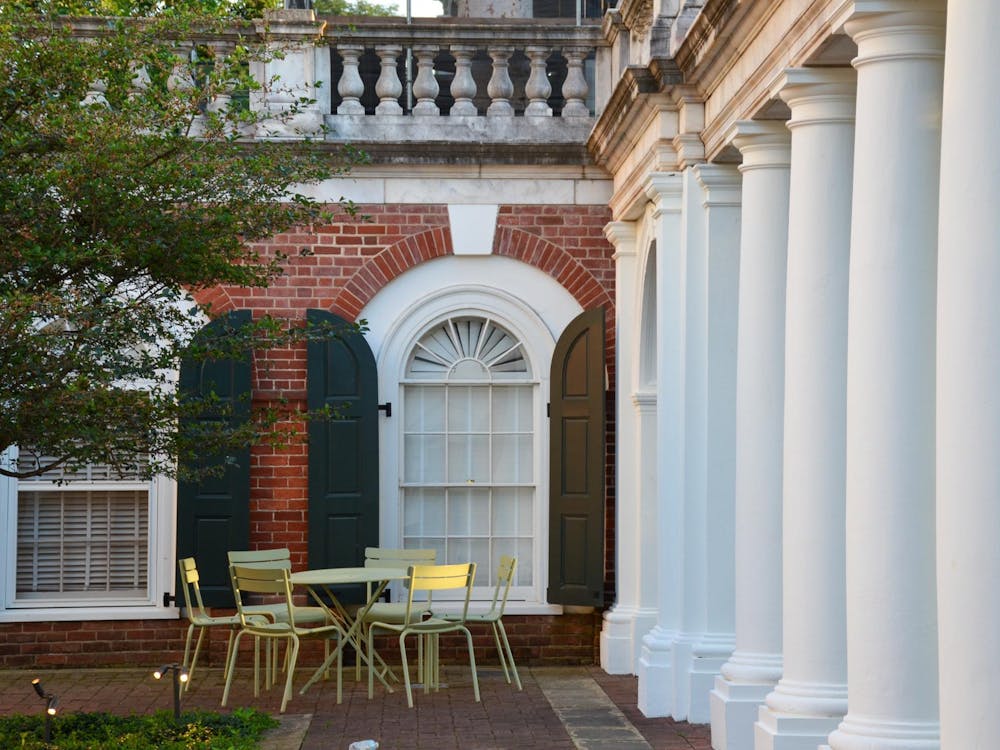The Honor Committee met Sunday to discuss a proposed bylaw pertaining to cases that arise from Title IX — which receives cases of sexual and gender-based harassment and violence — and their ability to investigate them. The meeting ended without a decision, but Honor Chair Lillie Lyon, a fourth-year in the College, requested the Committee think about the articles over the week and continue their discussion Sunday, Jan. 26.
The policy states that the Committee would not re-adjudicate Title IX cases if the Title IX process had already resolved or adjudicated the underlying issue. Any Honor cases brought to the Committee that implicate a Title IX case would be required to be directed to the Title IX Coordinator to ensure that Honor’s hearing the case would not constitute a re-adjudication of the initial case.
Mary Beth Barksdale, vice chair of education for the Honor Committee and fourth-year in the College, explained two potential scenarios for overrides of the Title IX Coordinator’s determination, in which a case that arose out of Title IX could potentially proceed in Honor.
The first type of override could be used in the following example — if an accused party admitted to stealing a bike and that fact was not relevant to the Title IX investigation, Honor could then pursue the offense. This case earned general support from the Committee.
“So, the override comes into play when … [Title IX] says, ‘Yes, taking this case would be a readjudication of the same facts,’” Barksdale said. “And we say, by unanimous executive vote … that they misunderstood what the definition of ‘material to’ means and this [Honor offense] was not actually relevant to the case.”
An Honor Representative proposed the term “material to” to amend the description of re-adjudication in the proposed policy during the meeting.
In addition to the first override, which deals with more routine cases, Honor is also considering their ability to make a second type of override — a more aggressive bylaw, with language that could potentially allow the body to review any case deemed “catastrophic” — viable for future Honor Committees to preserve the University’s integrity.
“If some lie were so catastrophic to the University community, and it arose out of Title IX, the same unanimous executive override could be used to take the case and acknowledge that it's Honor's duty to the community to take this case,” Barksdale said.
Vice Chair for Hearings Alex Spratley, a fourth-year in the College, spoke on the second type of override’s implications, which created a conflicted committee that aims to maintain respect for other institutions on Grounds while protecting students by pursuing justice on their behalf.
“We are not here to act as an appeal to Title IX,” Spratley said.
Honor briefly mentioned the Rolling Stones article from 2014 as an example, but that quickly came under scrutiny as a poor application of the bylaw. The article, “A Rape on Campus,” detailed a University student’s story of sexual assault but was later discredited and retracted.
“What was so horrible about Rolling Stones was that it was public,” Spratley said. “It was this national, huge article, and everything that went down in the article presumably could have been uncovered in the Title IX investigation, and no one would have ever known about it. But the indignation … over what Jackie did comes from the fact that it was public.”
No more examples were mentioned Sunday, and Barksdale mentioned that the lack of an appropriate example makes the second override’s discussion more difficult.
Honor’s decision to delay the vote results from the Committee trying to maximize their defense of students while working within their own limits.
“At the end of the day, we have to respect due process, and we have to understand what we can and cannot touch as far as expertise and resources and relationships to the rest of the University and the institutions,” Barksdale said. “And that's the goal of this — to find a happy medium there.”
The Honor Committee also considered Barksdale’s motion to make Honor’s Popular Assembly an annual event. The five-day Assembly presents multiple events including an Honor information session, a debate about the Honor system and an open Honor meeting. As of now, the Popular Assembly takes place every two years, something Barksdale wants to change.
“The idea behind making it annual instead of bi-annual is that by making it something that people look forward to, that they know to be thinking about every year, then you increase your participation, you increase the amount of feedback,” Barksdale said.
Although Barksdale is pleased with the educational opportunity the Assembly provides, she wants more consistent participation from students in communicating with Honor.
“I'm hoping that by making it annual, we'll actually see people actively participating instead of just watching the show,” Barksdale said.
Correction: The title of this article previously stated that the Honor Committee was introducing a potential Title IX override and has been updated to reflect that the potential overrides of the Title IX Coordinator’s determination are one provision of the formal policy introduced regarding re-adjudicating cases arising out of Title IX. Additionally, this article has been corrected to clarify that the Committee is creating a policy to address this type of case, not overriding any previous policy. The article also misquoted “material to” as “material two,” which was specific wording proposed at the meeting to change the proposed policy’s description of re-adjudication.







